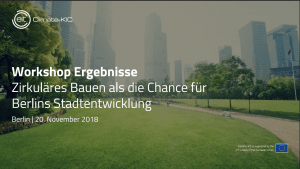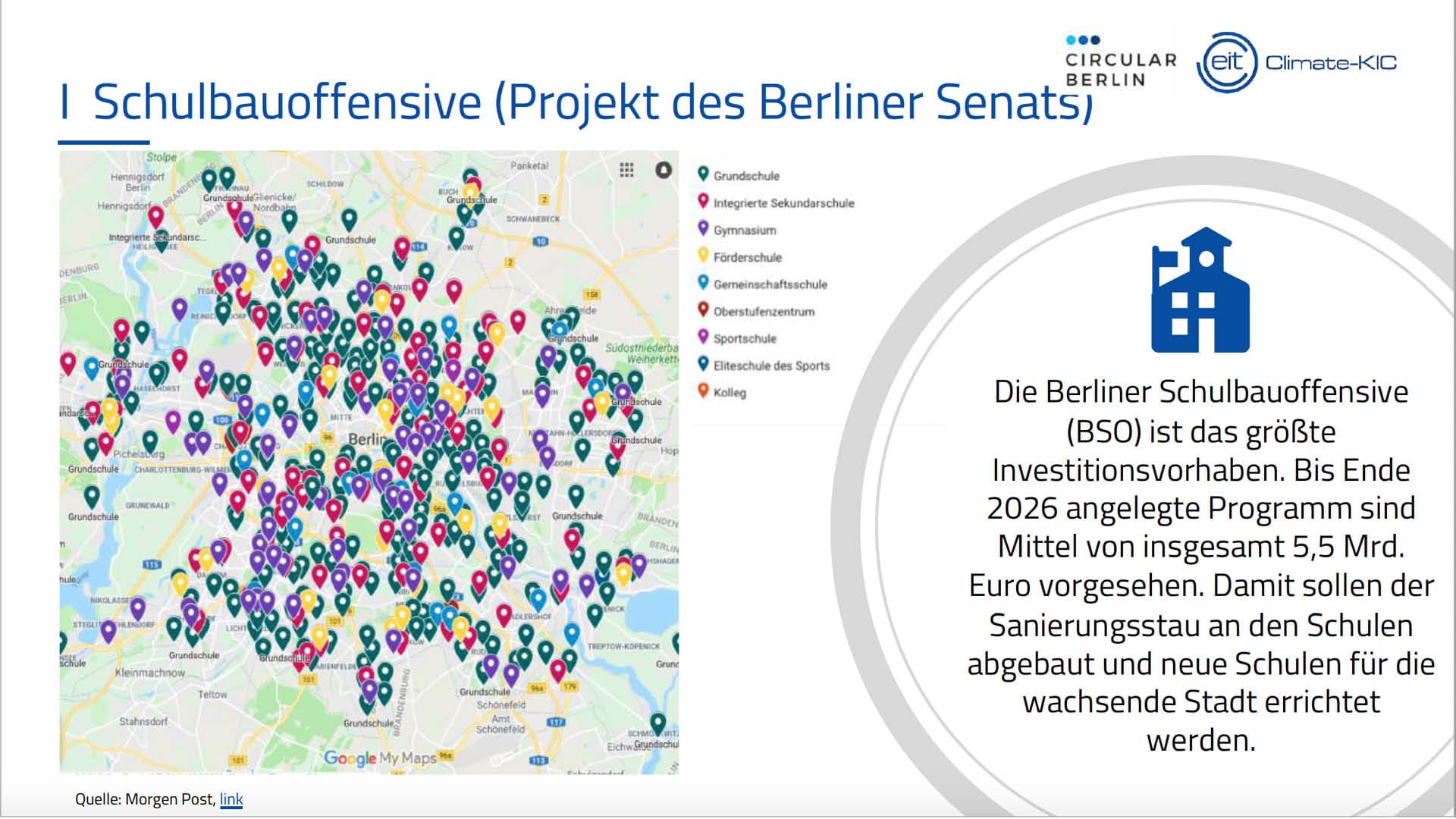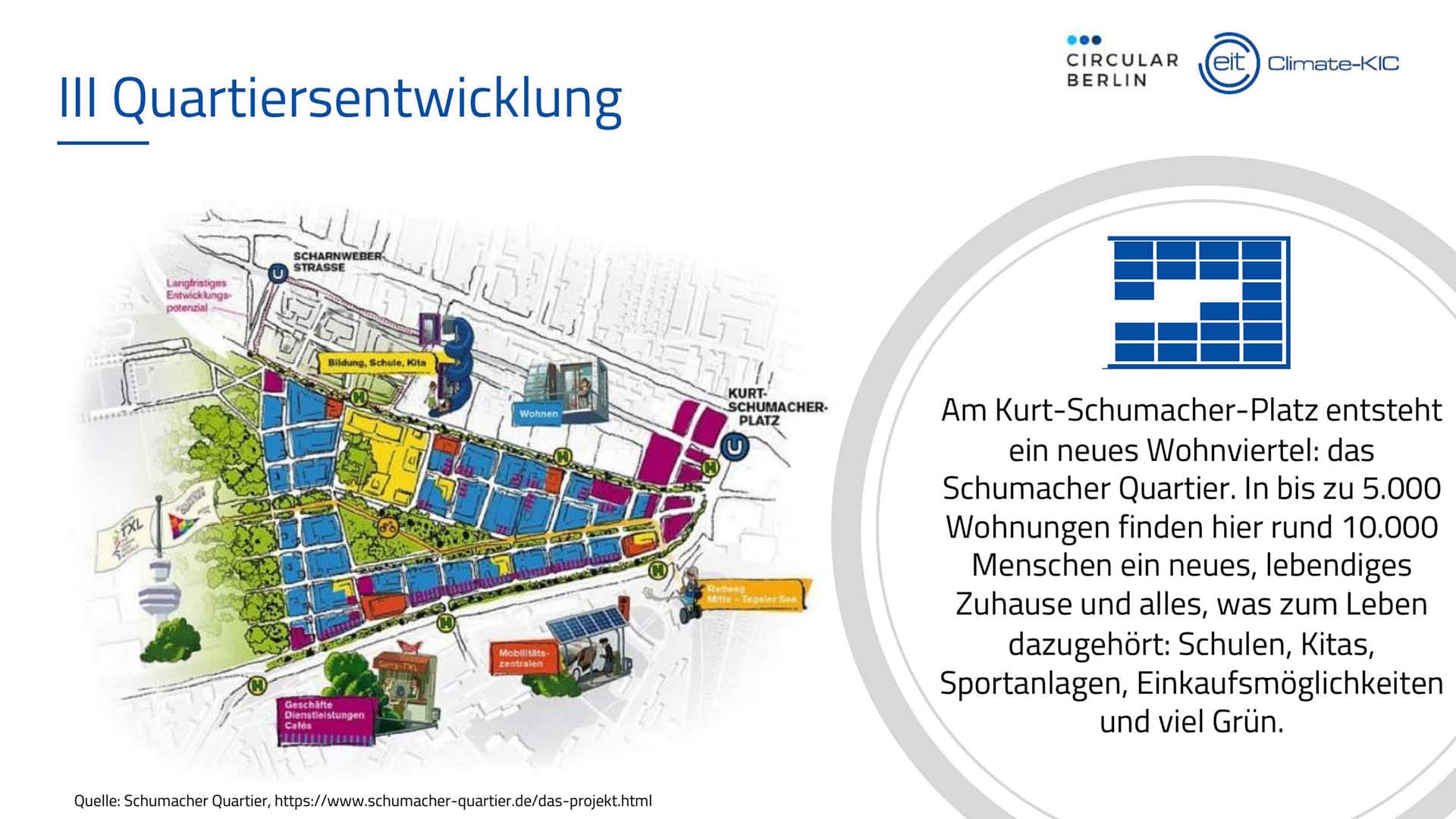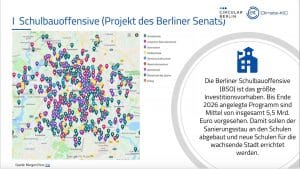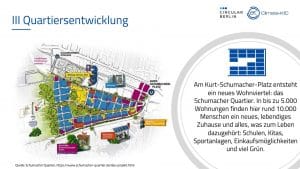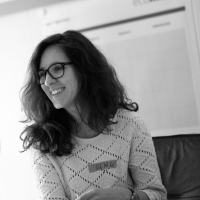We brought together industry experts, Berlin municipalities and academia to discuss the gaps in the construction sector across core areas of the value chain and to focus on the current major construction projects such as school construction plans, affordable apartments, and district development.
ORGANISERS
Circular Berlin, EIT Climate-KIC
DATE
November 2018
The challenge
The construction sector remains one of the most conservative and slow areas of transformation. The first step to understand the pain points of transformation towards circularity is to initiate open multi-stakeholder dialog.
Our approach
A workshop aimed to identify current gaps for implementing circular economy in construction by bringing together local stakeholders. The focus was on: Circular Construction financial instruments; Construction planning and materials; End of life, Materials recycling, and Deconstruction.
The outcome
The built environment and construction workshop led to the following results:
- Need for the development of a model to start using buildings more flexibly via participatory approaches
- Need for involvement of future tenants in the planning process
- Business models need to be based on lifecycle analysis and lifecycle models
- High demand for educational training for municipalities
- A city material database and a catalogue of secondary materials should be established using an appropriate central space
The workshop attracted different stakeholders including local NGOs, initiatives involved in circular economy industry work, academic partners, design and funding institutions, and municipality representatives.
Further steps
The workshop supported further ecosystem development in the construction sector. It led to the next stage assessment of barriers and enablers in the sector, of local city specifics, reflected in Berlin’s circular construction ecosystem project.


